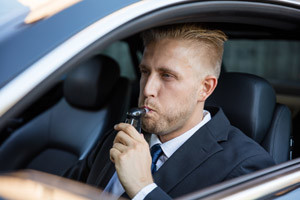
Even if you’re not being pulled over for suspicion of drinking and driving, it’s not unusual for the police officer, in the first few moments of the traffic stop, to inquire if you have been drinking. If you admit that you have, or the officer has any other reasonable belief that you may be impaired, the officer will typically ask you to submit to a blood alcohol test. What are your rights? Can you refuse to take the test? What happens if you do?
Implied Consent in New Jersey
The legal doctrine of implied consent governs your rights, as well as the consequences, when you have been requested to provide a blood alcohol sample while driving. Under the principle of implied consent, the police officer technically does not have to obtain your permission or consent to test your blood alcohol content (BAC). The officer will not need to show that you affirmatively or verbally agreed to the test—because consent is implied, that will be assumed.
The officer may not force you to take the test, and cannot draw your blood involuntarily. However, the request for the BAC sample is more of an instruction/order than request for participation.
Under the theory of implied consent, by getting behind the wheel of a car, you impliedly agree to provide a blood alcohol test when a police officer (who has reasonable cause) requests one. If you refuse, you will automatically have your drivers license suspended for a minimum of 12 months (for a first offense). A second refusal will lead to a two year suspension and a third refusal will result in a 10 year suspension.
Contact Attorney Edward M. Janzekovich
To schedule a free initial consultation, contact my office online or call me at 732-257-1137. Evening and weekend consultations are available by appointment. I accept all major credit cards.




